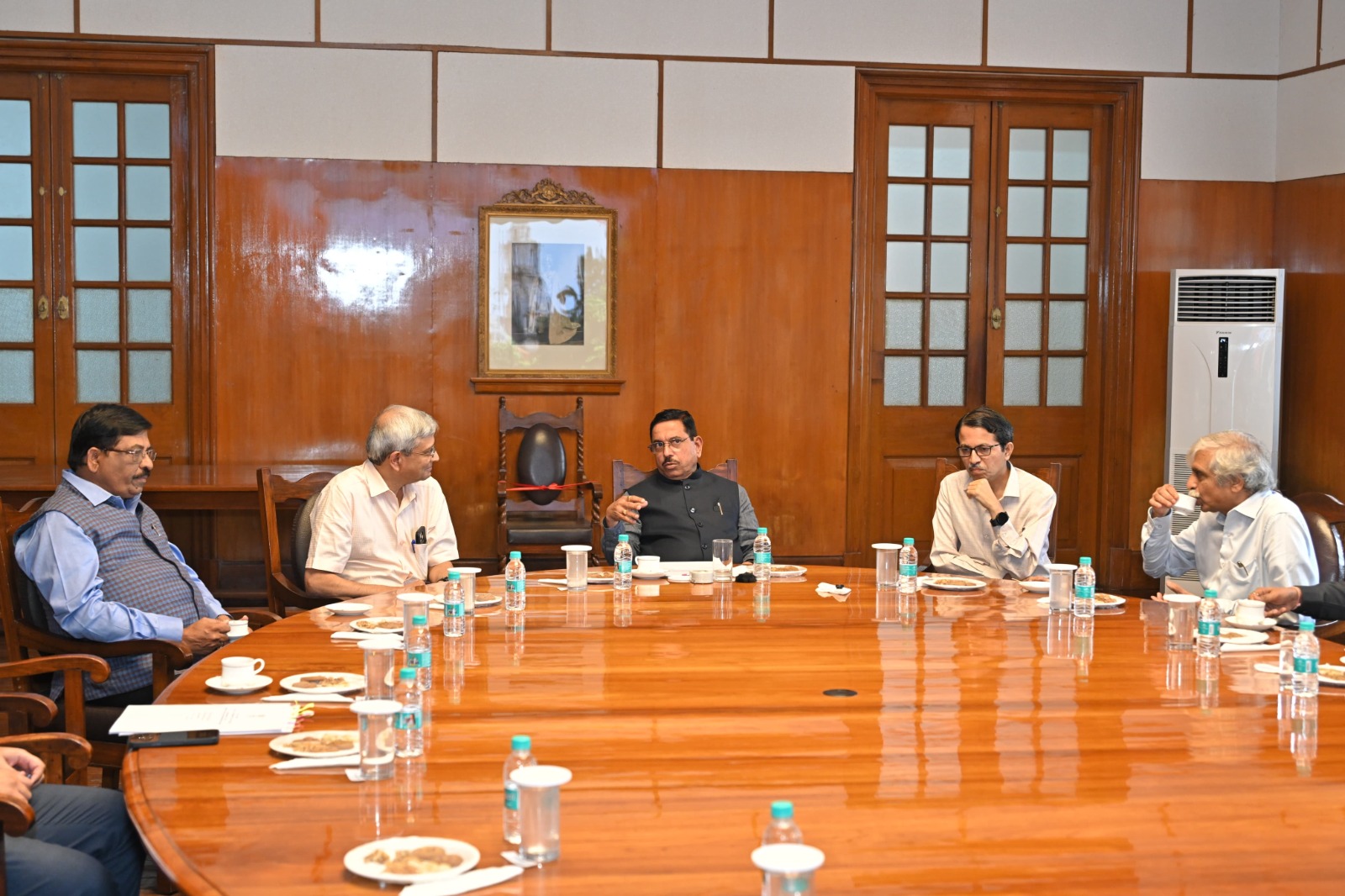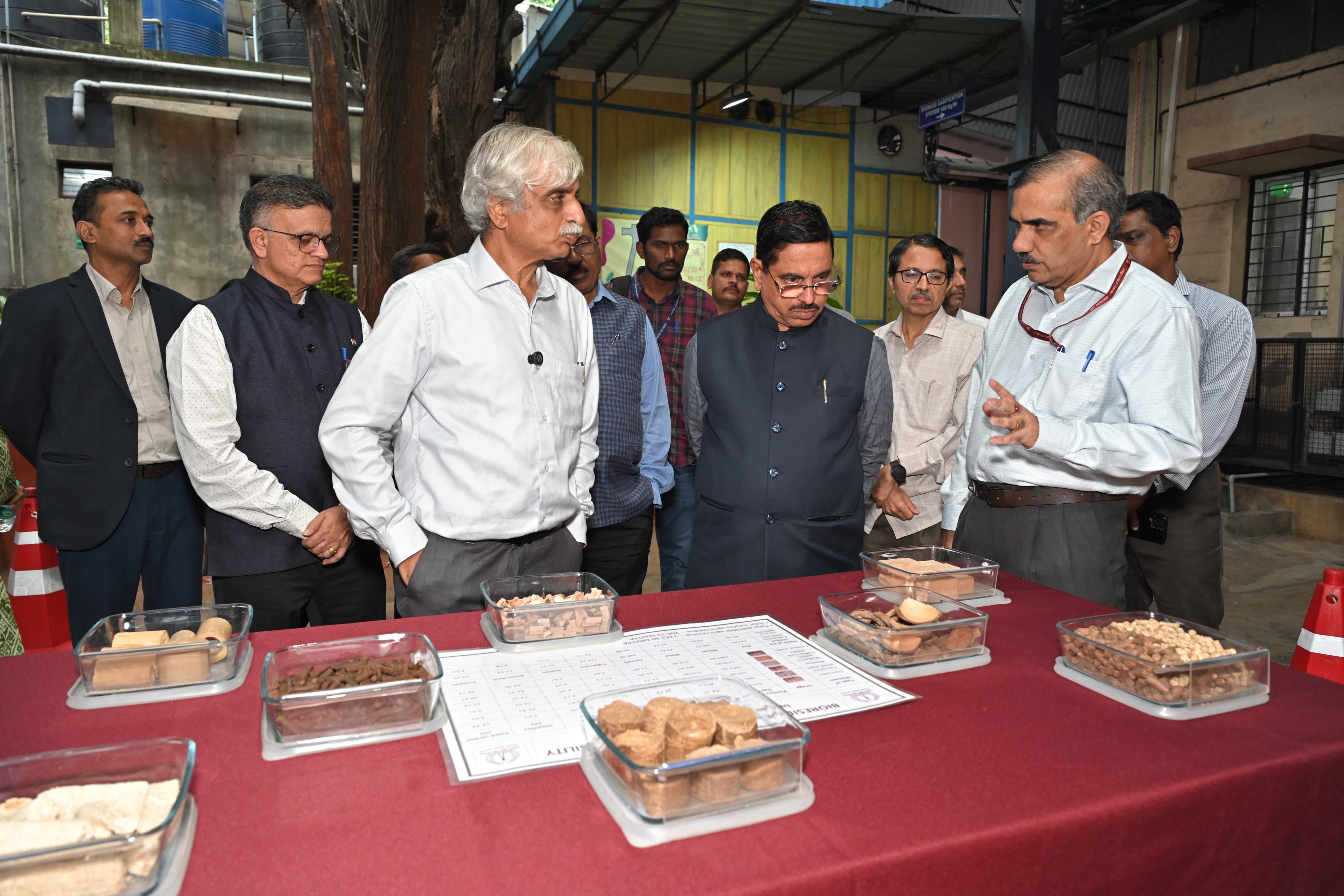Ministry of New and Renewable Energy
Union Minister Shri Pralhad Joshi lauds the innovation of producing green hydrogen from bio-waste at the Indian Institute of Science, Bengaluru
Each kilogram of green hydrogen will reduce the amount of carbon dioxide in the environment by more than one kilogram.
Production capacity of 5 kilo of 99% pure hydrogen every hour.
Environment-friendly fuel is being produced using agricultural waste set on fire in the field, which is indeed a self-reliant research: Shri Pralhad Joshi
Posted On:
18 JUL 2025 8:13PM by PIB Bengaluru
Union Minister of New & Renewable Energy Shri Pralhad Joshi visited the prestigious Indian Institute of Science (IISc) in Bangalore today, where he witnessed the innovative invention and experiment that produces environmentally friendly pure green hydrogen from agricultural waste. The honourable minister addressed prominent professors, researchers, and industry leaders during his visit. He emphasized the key role of IISc in shaping India's clean energy future and outlined the major challenges facing the scientific community.

In his address, Shri Joshi expressed happiness to be at the Indian Institute of Science, which is a source of 'global respect and national pride'. He thanked the IISc Director Prof. Rangarajan and praised the enthusiasm and hard work of the faculty members and researchers. The minister highlighted the century-old tradition of excellence that IISc has in Indian science. He especially praised the 'highly advanced green water generator production system' developed by Professor Dasappa and his team from bio-waste. Shri Joshi also stated, 'This system you have developed here is a prime example of what it means to transform fundamental science into effective technology.' He characterized it not just as a national achievement but as a 'global achievement'. This system can produce up to 5 kilograms of green hydrogen per hour using India's own agricultural residues with over 99% purity. Agricultural waste products are typically burned, or if left alone, they emit methane into the atmosphere. However, this invention demonstrates that it is possible to produce environmentally friendly fuel using these wastes. This invention is a 'truly self-sufficient innovation.' Uniquely, it is a carbon-reducing research, as 'every kilogram of hydrogen produced here removes more than one kilogram of carbon dioxide from the atmosphere,' he said.
Minister Joshi directly linked this innovation to the "National Green Hydrogen Mission" launched under the leadership of Prime Minister Modi at a cost of ₹19,744 crore. He reiterated the ambitious goals of the project, including an annual production capacity of 5 million metric tons of green hydrogen; an additional renewable energy capacity of 125 gigawatts; a total investment of ₹8 lakh crore; the creation of over 6 lakh jobs, and a reduction of 50 million metric tons of carbon dioxide emissions each year. He mentioned that the funding has already been provided for an annual production capacity of 3,000 megawatts of electrolyzers and an allocation of a capacity for 8.6 lakh tons of green hydrogen production per year.
The minister stressed that "Any national program cannot succeed solely with financial assistance" and presented four national challenges before the educational and scientific community at 'IISC': Hydrogen conservation: It is difficult to store hydrogen. Keeping this in mind, it is very important to emphasize the need for serious and specialized research programs on safe and reliable hydrogen conservation solutions.

Cost reduction of electrolysis systems: The minister emphasized on reducing the costs of electrolysis systems, by stating, 'True progress comes not from subsidies, but from science’. He advised the Indian Institute of Science's 'CeNSE' (Center for Nano Science and Engineering) specialized in nanomaterials and thin films to work towards 'developing next-generation, more efficient, low-cost electrolysis units.
'Reducing the cost of hydrogen-powered vehicles: Shri Joshi highlighted the need to reduce the cost of hydrogen-powered vehicles and to develop accessible hydrogen fuel refuelling centres. He recognized the significant role of 'IISc' in developing high-efficiency, low-cost fuel cell technologies. He also mentioned that 5 pilot projects for 37 hydrogen-fuel vehicles and 9 fuel refuelling centres have already been provided under NGHM.

Reducing the price of green hydrogen: The minister stated that it is very urgent to reduce the current cost of green hydrogen from Rs. 300-400 per kg to Rs. 100. He recalled Shri Amitabh Kant's goal of bringing it down to 1 dollar per kg by 2030. Before concluding his speech, the minister presented another challenge and requested the IISc community to not only to lead India in green hydrogen research but also to make India a world leader in affordable, immense, and sustainable hydrogen technology." In this regard, he assured full support from his ministry. He promised collaboration for pilot projects, financial aid and industrial partnerships for scaling up. He concluded his remarks by calling out, "Together, let us make India a frontrunner in the green hydrogen economy."
*****
SGR/MM/PRD
(Release ID: 2145928)
Visitor Counter : 328